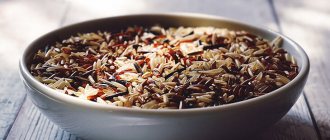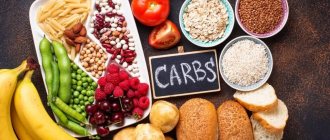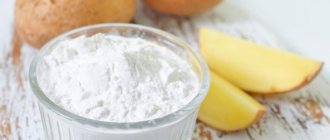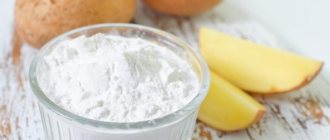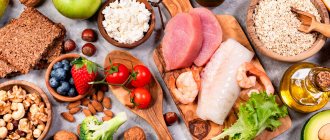Home — For the public
- Map of medical organizations
- Vaccination
- Clinical examination
- Fluorography
- Addresses and opening hours of clinics
- Emergency rooms
- Oncology
- Where to take an HIV test
- Healthy child's office
- Services
- Prevention of CVD
- Disease Prevention
- World Patient Safety Day
- Newspaper "Medical News"
- specialist
- School of Health
— Disease prevention
- HIV infection
- All about vaccination
- All about proper nutrition
- Hepatitis
- Flu
- Dementia
- Schoolchildren's health
- STD
- Tick-borne encephalitis
- Whooping cough
- Measles
- Legionellosis
- Meningococcal infection
- Oncology
- Acute intestinal infection
- Pediculosis
- First aid
- Pneumococcal infection
- Pneumonia
- Prevention of rabies
- Dependency Prevention
- Rotavirus infection
- Diabetes
- Cardiovascular diseases
- Injuries
- Tuberculosis
- Tularemia
- Physical activity
- Obstructive pulmonary disease
- Exotic infections
- Ecology
- Why is swimming in ponds dangerous?
— All about proper nutrition — How many calories should you eat per day?
All nutrition recommendations are individual and depend on your goals.
According to the WHO, nutrition is the source of health. Physiologically complete healthy nutrition provides a person with normal growth and development, supports vital activity, and helps prevent diseases.
Daily carbohydrate intake for women and how to calculate it
Most girls are afraid of carbohydrates and strive to completely remove them from their diet. But is this justified? How carbohydrates affect our weight, and how much of them is safe for your figure. Today we will look at the topic of carbohydrates for women: daily intake, intake for weight loss, what their excess and deficiency lead to, and what carbohydrates should be chosen.
Carbohydrates
– it’s not only very tasty, it’s also healthy if you don’t go overboard with the quantity and choose quality sources. All carbohydrates contained in food are different and have different effects on the body.
Carbohydrates act as a source of energy for cells. When you eat carbohydrate foods, the carbohydrates are broken down into smaller compounds such as glucose and provide fuel to your body's cells. Excess carbohydrates are stored as glycogen in the liver and muscles. When the body doesn't get enough carbohydrates from food, it turns to these glycogen stores.
Certain types of carbohydrates also play key roles in digestion, heart health, and brain function. In some cases, the body is able to convert other nutrients - such as proteins or fats - into glucose to perform certain functions. In other cases, lack of certain types, such as fiber, can affect everything from cholesterol levels to bowel function. In addition, carbohydrates are needed for metabolism, muscle function and the nervous system. Therefore, you cannot exclude carbohydrates from your diet on your own - you must do this only according to indications and under the supervision of a specialist.
Excessive carbohydrate consumption coupled with low energy consumption leads to excess weight gain. Therefore, it is believed that excess carbohydrates in the diet leads to obesity, metabolic disorders, increased cholesterol and the development of diabetes.
A woman's required daily carbohydrate intake depends on many factors.
:
- age;
- health status;
- goals;
- level of physical activity;
- individual preferences.
Therefore, it would not be correct to derive one general figure for all women. For example, Masha, who works in an office and has insulin resistance, and Marina, a fitness trainer who trains every day, will have completely different needs for carbohydrates. One leads a sedentary lifestyle and already has health problems, while the other moves a lot and needs a lot of energy. Even if they are the same age and pursue the same goals, their daily carbohydrate intake will be radically different.
Let's summarize
: The amount of carbohydrates depends on the level of physical activity, lifestyle and overall health. And, of course, the daily intake of carbohydrates depends primarily on the woman’s goal: maintaining, gaining weight or losing weight. Depending on the woman’s initial condition and her goals for health and figure, a decision is made on how many carbohydrates she needs.
Tips for better results
The following simple recommendations will help improve the result of calculating KBJU:
- eat in small portions: often and in small portions, about 5-6 times a day;
- cook with a minimum amount of oil or without it at all, using a grill, double boiler, or non-stick frying pan;
- reduce the consumption of salt, sugar and foods rich in them: smoked meats, confectionery and flour products, canned food, semi-finished products;
- try to look for an alternative to “harmful” dishes, cook on your own, if possible avoid food from the supermarket, since it may contain hidden sugar, various additives, preservatives that are harmful to health;
- Drink a sufficient amount of clean drinking water per day - at least 1.5-2 liters. The norm is 30 ml per kilogram of weight.
Proper nutrition is often not enough for weight loss; other factors are also important, which a weight loss clinic can explain in more detail. Which ones are they talking about, for example? Proper nutrition is just enough to lose weight. But for proper nutrition, it is not enough just to know what and how much to eat. Everyone knows, but few do it. It doesn’t work to force yourself for a long time, and after violence of any duration, the weight comes back. So you just need to get into the habit of eating right. And how to make healthy food a natural desire, a habitual and stress-free daily activity is taught by psychologists, psychotherapists, and weight loss specialists.
Norm, excess or lack of carbohydrates in the female body
There are some general figures that you can focus on, but you should not take them as the only correct ones. According to the American Dietary Guidelines, carbohydrates should make up 45 to 65 percent of daily caloric intake. We remind you that this is only a general figure for a conditionally healthy person without taking into account his goals and characteristics.
It is believed that to maintain body weight, it is enough to consume 2-5 g of carbohydrates per day per 1 kg of weight. When gaining muscle mass, this number is increased, and when losing weight, it is reduced.
To lose weight, women often use low-carb diets, which, according to research, are actually effective. Reducing carbohydrates can often help you lose weight without counting calories by simply limiting your carbohydrate sources.
In order to lose weight, the amount of carbohydrates is reduced to 50-150 grams per day. This can have both its advantages and disadvantages.
Research shows that low-carb diets can be part of an effective weight loss strategy. They limit their carbohydrate intake while replacing them with proteins, healthy fats and vegetables. It is believed that they can help reduce a person's appetite (through quality fat sources in the diet), and cause them to eat fewer calories than other diets.
Study
: The Effects of a Low-Carbohydrate Diet on Appetite: A Randomized Controlled Trial
It's worth noting that low-carb diets have other benefits besides weight loss. They can help lower blood sugar, blood pressure and triglycerides, as well as increase HDL (good) cholesterol levels and improve the composition of LDL (bad) cholesterol.
Study
: Health Effects of Low-Carbohydrate Diets: Where Should New Research Go, Effects of Low-Carbohydrate Diets Versus Low-Fat Diets on Metabolic Risk Factors: A Meta-Analysis of Randomized Controlled Clinical Trials
What is BZHU
The abbreviation BZHU stands for: proteins, fats and carbohydrates. They form the basis of the foods and foods we consume every day. Their balance allows the body to function fully, maintains health, and also manages weight. We must remember that the desire to lose weight often pushes us to strict diets and intense physical activity. In order not to harm the body, as well as to maintain the effect and health, you need to lose weight correctly and not deprive the body of vital substances, vitamins and useful elements.
shutterstock.com
How many carbohydrates does a woman need to lose weight?
As we've already discussed, the optimal amount of dietary carbohydrates varies for each person. Many experts recommend consuming 15-30% of your total calories as carbohydrates. For most women, this is usually 75-150 grams per day, although increases or decreases may be recommended on a case-by-case basis.
Some women are better off not resorting to extremely low carbohydrate values, but rather consume a moderate amount of carbohydrates, about 100-150 grams. in a day.
This applies to women who
:
- lead an active lifestyle and need recovery after training;
- have problems with the thyroid gland;
- have amenorrhea or irregular cycles;
- followed a severely low-carb diet for an extended period of time;
- are pregnant or breastfeeding.
We recommend
“How to reduce carbohydrates while losing weight: 8 steps, list of allowed and prohibited foods” Read more
In these cases, moderate carbohydrate diets will provide the following benefits
:
- weight loss;
- improved mood and energy levels;
- normal menstrual function;
- improved sleep.
For some women, such as athletes or those looking to gain muscle mass, a carbohydrate intake of more than 150 grams may be more appropriate.
For some women, lower carbohydrate intake is recommended, but under the supervision of a specialist.
This applies to women who
:
- Are overweight or obese.
- They lead a sedentary lifestyle.
- Have polycystic ovary syndrome (PCOS), fibroids, or endometriosis. https://www.ncbi.nlm.nih.gov/pmc/articles/PMC1334192/
- They have IR. https://pubmed.ncbi.nlm.nih.gov/15767618/
- Diagnosed with type 1 or 2 diabetes.
- Have a neurodegenerative disease (Alzheimer's or Parkinson's disease). https://www.nature.com/articles/ejcn2013116
- Have certain forms of cancer.
Women's hormones are sensitive to energy availability, meaning too few calories or carbohydrates can cause an imbalance. This imbalance can have very serious consequences, including impaired fertility, poor mood and even weight gain.
However, most evidence suggests that these effects tend to be observed only in women who have been on a very low-carbohydrate diet (less than 50 grams per day) for long periods of time.
Each person is different, and optimal carbohydrate intake varies greatly between individuals. There is no one solution suitable for everyone. Some people do best on a severely low-carbohydrate diet, while others function best on a moderate-to-high-carbohydrate diet.
To find out what amount of carbohydrates works best for you, try experimenting and adjusting your carbohydrate intake based on how you feel, how much energy you have, and how you look.
Table of BJU of vegetables and fruits
Amount of carbohydrates per 100 g
- Potatoes 19.7
- Boiled corn 22.5
- Green peas 13.3
- Olives 12.7
- Carrot 8
- Eggplant 7
- Beetroot 7
- Avocado 6
- Sweet pepper 5.7
- White cabbage 5.4
- Zucchini 5
- Cucumber 4
- Pomodoro 4
- Prunes 38
- Garnet 15
- Fig 12
- Pear 11
- Apples 10
- Peach 10
- Plum 10
- Oranges 8
- Grapefruit 6
- Lemon 3
How to determine the amount of carbohydrates in foods
Tables or various calorie counters will help you determine the amount of carbohydrates in foods. But it is very important to focus not only on numbers
, but also on
the quality
of these carbohydrates. So, calories from a cake and calories from chickpeas are completely different calories that will affect the body differently. Therefore, it is always better to direct your attention to the products themselves, and not to dry numbers. Tables with carbohydrate content can serve as a guide and help you make the right choice when planning your diet.
We recommend
“The most dangerous fats: how they affect health” Read more
High carbohydrate foods:
| Name | Amount of carbohydrates |
| Candy lollipop (caramel) | 95.8 g |
| Bee honey | 80.3 g |
| Rice flour | 80.2 g |
| Paste | 80 g |
| Marshmallow | 79.8 g |
| Chewable marmalade | 79.4 g |
| Custard gingerbread | 75 g |
| Sugar cookies | 74.4 g |
| Sugar cookies | 74.4 g |
| Strawberry jam | 74 g |
| Rice groats | 74 g |
| Corn flour | 72.1 g |
| Simple dryers | 71.2 g |
| Corn grits | 71 g |
| Semolina | 70.6 g |
| Buckwheat flour | 70.6 g |
| Premium flour pasta | 70.5 g |
| Raspberry jam | 70.4 g |
| Premium wheat flour | 69.9 g |
| Dates | 69.2 g |
| Wheat groats | 68.5 g |
| Butter cookies | 68.5 g |
| Butter cookies | 68.5 g |
| Pasta made from 1st grade flour | 68.4 g |
| Wheat flour 1st grade | 67.8 g |
| Pearl barley | 66.9 g |
| Cream crackers | 66.7 g |
| Millet groats (polished) | 66.5 g |
| Seeded rye flour | 66.3 g |
| Oat bran | 66.2 g |
| Raisin | 65.8 g |
| Barley groats | 65.4 g |
| Oat flour | 64.9 g |
| Oat flour (oatmeal) | 64.9 g |
| Wheat flour 2 grades | 64.8 g |
| Sponge cake with protein cream | 63.1 g |
| Dried pear | 62.6 g |
| Waffles | 62.5 g |
| Rice (grain) | 62.3 g |
| Peeled rye flour | 61.8 g |
| Oat flakes "Hercules" | 61.8 g |
| Wheat flour | 61.5 g |
| Buckwheat (prodel) | 60.4 g |
| Oatmeal | 59.5 g |
| Wheat (grain, soft variety) | 59.5 g |
| Chocolate candies | 59.2 g |
| Dried apples | 59 g |
| Rye wallpaper flour | 58.5 g |
| Dried figs | 57.9 g |
| Dried peach | 57.7 g |
| Wheat (grain, durum) | 57.5 g |
| Prunes | 57.5 g |
| Buckwheat (kernel) | 57.1 g |
| Low-fat condensed milk with sugar | 56.8 g |
| Barley (grain) | 56.4 g |
| Buckwheat (grain) | 56 g |
| Rye (grain) | 55.8 g |
| Butter buns | 55.5 g |
| Condensed milk with sugar 8.5% | 55.5 g |
| Condensed milk with sugar 5% | 55.2 g |
| Oats (grain) | 55.1 g |
| Sunflower halva | 54 g |
| Dried acorns | 53.6 g |
| Dried apricots | 53 g |
| Low-fat dry milk | 52.6 g |
| Shortcake with cream | 52.1 g |
| Sliced loaf | 51.4 g |
| Dried apricots | 51 g |
| Milk chocolate | 50.4 g |
Carbohydrate content in cereals, grain products and legumes:
| Peas (shelled) | 48.1 g |
| Green peas (fresh) | 8.3 g |
| Buckwheat (grain) | 56 g |
| Rice casserole | 19.4 g |
| Curd-rice casserole | 26.1 g |
| Green peas (canned) | 6.5 g |
| Buckwheat porridge (from kernels) | 14.6 g |
| Oatmeal porridge Hercules | 14.8 g |
| Semolina porridge | 16.4 g |
| Oatmeal porridge | 15.5 g |
| Pearl barley porridge | 22.9 g |
| Wheat porridge | 25.7 g |
| Millet porridge | 16.8 g |
| Rice porridge | 25.8 g |
| Barley porridge | 15.3 g |
| Semolina cutlets | 20.2 g |
| Bran crackers | 63.2 g |
| Buckwheat (prodel) | 60.4 g |
| Buckwheat (kernel) | 57.1 g |
| Corn grits | 71 g |
| Semolina | 70.6 g |
| Oatmeal | 59.5 g |
| Pearl barley | 66.9 g |
| Wheat groats | 68.5 g |
| Millet groats (polished) | 66.5 g |
| Rice groats | 74 g |
| Barley groats | 65.4 g |
| Canned corn | 11.2 g |
| Sweet corn | 19 g |
| Homemade noodles | 60.1 g |
| Pasta made from 1st grade flour | 68.4 g |
| Premium flour pasta | 70.5 g |
| Boiled pasta | 20 g |
| Egg pasta | 69.6 g |
| Mash | 46 g |
| Buckwheat flour | 70.6 g |
| Corn flour | 72.1 g |
| Oat flour | 64.9 g |
| Wheat flour 1st grade | 67.8 g |
| Wheat flour 2 grades | 64.8 g |
| Premium wheat flour | 69.9 g |
| Wheat flour | 61.5 g |
| Peeled rye flour | 61.8 g |
| Rye wallpaper flour | 58.5 g |
| Seeded rye flour | 66.3 g |
| Rice flour | 80.2 g |
| Chickpeas | 46.1 g |
| Oats (grain) | 55.1 g |
Fats
Fats are an essential component of a rational, balanced diet. It is fat deposits that are the body's energy reserve. Thus, the oxidation of 1 g of fat releases 9 kcal of energy. Fat is part of cell membranes and nerve fiber sheaths, and is involved in the synthesis of vitamins, hormones, and bile acids.
Fats are divided into saturated (in animal products) and unsaturated (in plant products). The nutritional value of fats is associated with the presence of unsaturated fatty acids and vitamins A. E, D.
The average daily requirement is 80-100 g of fat, of which 30% should be vegetable oils.
List of foods with healthy carbohydrates
Not all carbohydrates are created equal. There are many different types of carbohydrate-containing foods, and they can vary in their health effects. Carbohydrates are usually divided into “simple” and “complex” or “whole” and “refined”. Let's figure out which of them are more correct.
Whole carbohydrates are unprocessed and contain fiber, while refined carbohydrates are processed and have their natural fiber removed.
Examples of healthy whole carbohydrates
:
- vegetables;
- quinoa;
- barley;
- legumes;
- potato;
- whole grains.
We recommend
“Proteins in products for weight loss: features of protein diets and sample menu” Read more
Refined carbohydrates
:
- sugar-sweetened drinks;
- White bread;
- bakery;
- other products made from white flour.
Numerous studies show that consumption of refined carbohydrates is associated with obesity and type 2 diabetes.
Study
: Glycemic Index, Glycemic Load, Carbohydrates, and Type 2 Diabetes, Dietary carbohydrates, refined grains, glycemic load, and risk of coronary heart disease in Chinese adults
Refined carbohydrates tend to cause increased hunger and cravings for unhealthy foods. In addition, they are poor in nutrients - these are “empty” calories.
However, one should not demonize all carbohydrate-containing foods. Whole carbohydrate sources are loaded with nutrients and fiber and won't cause spikes and dips in your sugar levels. Numerous studies of high-fiber carbohydrates, including vegetables, fruits, legumes and whole grains, show that consuming them is associated with improved metabolic health and a reduced risk of disease.
Study
: Fruit and vegetable intake and the risk of cardiovascular disease, total cancer and all-cause mortality—a systematic review and dose-response meta-analysis of prospective studies, The Effects of Legumes on Metabolic Features, Insulin Resistance and Hepatic Function Tests in Women with Central Obesity: A Randomized Controlled Trial, Consumption of nuts and legumes and risk of incident ischemic heart disease, stroke, and diabetes: a systematic review and meta-analysis
Instead of thinking of carbohydrates as “good” or “bad,” focus on increasing your whole, complex sources.
List of healthy carbohydrates
:
- Vegetables
. Try to add a variety of carbohydrate sources from vegetables to your diet every day.
- Whole fruits
: apples, bananas, kiwi, oranges, grapefruits.
- Berries
: blueberries, raspberries, strawberries, blueberries, currants.
- Legumes
: lentils, beans, peas.
- Nuts
: almonds, walnuts, hazelnuts, macadamia.
- Seeds
: chia seeds, pumpkin seeds and hemp seeds.
- Whole grains
: quinoa, brown rice, buckwheat.
Sources of carbohydrates that should be limited or eliminated if possible
:
- Sweet drinks
: Carbonated drinks, fruit juices with added sugar and all drinks sweetened with high fructose syrups.
- White bread
. These are refined carbohydrates that are low in essential nutrients and have a negative impact on metabolism.
- Baked goods, cookies and cakes
.
- Ice cream
.
- Candies and chocolates
. If you do choose chocolate, let it be quality dark chocolate.
- French fries and potato chips
.
We recommend
“Nutrition for edema: diagnostics of the body and preparation of the correct diet” Read more
List of healthy carbohydrates
:
- Quinoa
Cooked quinoa contains 21.3% carbohydrates, making it a high-carbohydrate food, but it is also a good source of protein and fiber. Quinoa is rich in many minerals and plant compounds. It is gluten-free and is a popular alternative to wheat for those following a gluten-free diet.
Study
: Dietary animal and plant protein intakes and their associations with obesity and cardio-metabolic indicators in European adolescents: the HELENA cross-sectional study, In vitro starch digestibility and in vivo glucose response of gluten-free foods and their gluten counterparts
- Buckwheat
Raw buckwheat contains 71.5% carbohydrates, while cooked buckwheat contains about 20% carbohydrates. It is very nutritious as it contains protein, fiber and a large amount of minerals and antioxidants. It may also be beneficial for heart health and blood sugar control, especially in people with diabetes.
Study
: Comparison of hypertension, dyslipidaemia and hyperglycaemia between buckwheat seed-consuming and non-consuming Mongolian-Chinese populations in Inner Mongolia, China, Oats and buckwheat intakes and cardiovascular disease risk factors in an ethnic minority of China
- Bananas
Bananas are one of the most popular fruits in the world. They consist of approximately 23% carbohydrates in the form of starches or sugars. Bananas are rich in potassium, vitamin B6 and vitamin C. They also contain several beneficial plant compounds. Unripe bananas contain resistant starch and pectin, which support digestive health and nourish friendly gut bacteria.
Study
: Potassium intake, stroke, and cardiovascular disease a meta-analysis of prospective studies, Digestion of the carbohydrates of banana (Musa paradisiaca sapientum) in the human small intestine
- Sweet potato
A tasty and nutritious tuber - contains 18-21% carbohydrates. This carbohydrate content consists of starch, sugar and fiber. Sweet potatoes are a rich source of provitamin A (from beta carotene), vitamin C and potassium.
- Beet
Raw and cooked beets contain about 8-10% carbohydrates, mostly sugar and fiber, plus vitamins, minerals, powerful antioxidants and plant compounds. Beets are also rich in inorganic nitrates, which are converted to nitric oxide in the body. Nitric oxide lowers blood pressure and may reduce the risk of developing a number of diseases. Beetroot juice is very rich in inorganic nitrates and is often used to enhance physical performance during endurance exercise.
- Oranges
They are mainly composed of water and contain 11.8% carbohydrates. Oranges are also a good source of fiber, especially rich in vitamin C, potassium, and some B vitamins. They also contain citric acid, as well as several very powerful plant compounds and antioxidants. They will help increase the absorption of iron from food, reducing the risk of developing anemia.
- Blueberry
It can be called a superfood due to its high amount of plant compounds and antioxidants. It contains high amounts of many vitamins and minerals, including vitamin C, vitamin K and manganese. Research shows that blueberries protect the body from oxidative damage and may improve memory in older adults.
Study
: Cellular antioxidant activity of common fruits, Effect of a wild blueberry (Vaccinium angustifolium) drink intervention on markers of oxidative stress, inflammation and endothelial function in humans with cardiovascular risk factors
We recommend
“Immunoglobulin deficiency: types and causes” Read more
The list of healthy carbohydrates is actually very long! Just choose the ones you like and don’t forget to keep track of the quantity.
Carbohydrates
- this is good, these are our friends and energy suppliers. For them to work for us, and not against us, it is necessary to choose quality sources and control portion sizes. Replace refined carbohydrates with whole ones, don’t overeat, and add healthy fats to every meal - then you’ll get the maximum benefit from carbohydrates without harming your health.
Expert opinion
The main and determining factor for losing weight is the psychology of eating behavior. A competent specialist supervises the patient throughout the entire weight loss process and helps him solve the following issues:
- goal setting, search for motivation tools;
- analysis of existing psychological problems: often people eat stress, eat for company or out of boredom - all this is wrong, each of these situations requires searching for a different “solution”;
- establishing relationships with loved ones, friends, colleagues: moral support is extremely important for losing weight;
- tasty food can be a kind of “reward” - for hard work, for a task successfully completed: food should be a way to satisfy the needs of the body, you should not make a cult out of it.
In fact, weight loss is a long process that has a large number of pitfalls and hidden difficulties. Only 5% of people are able to lose weight on their own, without any help. For everyone else, it’s better to immediately seek help from weight loss specialists, rather than test your body’s strength.
